Kevin Land Patrick's Blog, page 5
December 20, 2020
Books are the Best Stocking Stuffers
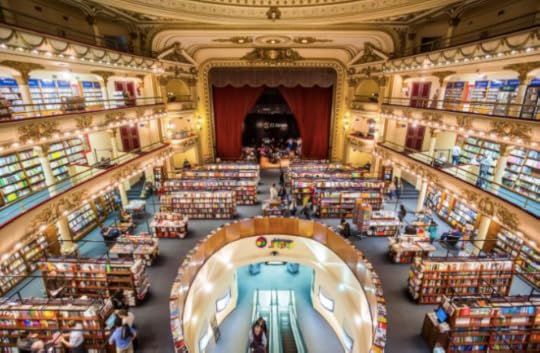
What costs less than $10 and gives days of pleasure? E-books. Today through the end of 2020, you can get the entire Twelvers Series (Book 1: Threatened Waters; Book 2: Unholy Alliances; and Book 3: Silkworm) all for under $10. And if these books don’t interest you, there are thousands of other choices by fabulous authors out there! CLICK HERE for E-books Stocking Stuffers
July 18, 2020
Ethiopian Dam Fills and Egypt Threatens a Water War

Ethiopia’s Renaissance Dam was the subject of my first novel, THREATENED WATERS: Reality Sets In on the NileBBC recently published a series of excellent articles on the Nile River controversy which has threatened water wars for the past ten years. Ethiopia, backed by Chinese investment, has damned the Nile with the avowed goal of becoming the hydropower provider to Northeast Africa. You can read the BBC here (or buy Threatened Waters and live the controversy vicariously).
July 4, 2020
In Consideration of Independence Day

I was born on Independence Day, a few more years ago than to my liking. I studied the Constitution and the Declaration of Independence as instruments to live by. The common theme in these simple and short documents everyone should read is the united in United States and we in We the People. For at least a weekend, in these hard times where people are unemployed, hurting, and sick, let’s all remember those common themes. For at least today, imagine there is no left, there is no right, there is no black, there is no white, there is only us. We have a long way to go to match reality to the principles of equality, but with the vision of our forefathers and hard work, we will get there. Pause to remember and honor a few revolutionaries a few years shy of 250 years ago, and all the men and women who came before us, to fight, farm, and manufacture what we now enjoy.
April 20, 2020
SILKWORM, Book 3 in the Twelver Series: The First Chapter

In the third part of the “First Chapter” blog-post, I ask the same question: Does the First Chapter grab you? Does it make you ask: What’s going on, where might this go, what are the stakes, and do I want more? Is there enough interest to turn to the next chapter? Silkworm was my third novel and the final book in the Twelver Series. Here is the first chapter in text below. Let me know what you think.
Chapter 1
October, 1987. Persian Gulf, off the coast of Kuwait
It wasn’t what they taught him. He stood on the bridge of the USS Kidd, scanning an empty horizon. The heat haze of the Gulf cast a shimmering silver curtain hiding the frustrating play unfolding. They were too far away. They were spectators to the belligerents lashing out at innocents.
“Solid fuel burner bearing two-seven-zero degrees, Angel’s one-point-two, speed three-ninety-five. It’s on course for Kuwait’s al-Ahmadi terminal sir,” The airman first class reported, his voice cracking slightly for all to hear on the surface ships below. From the sterile gray interior of the E-4 Sentry early warning aircraft, young watchful eyes scanned the sky for any aircraft or missile signature. It had been like fishing, boredom punctuated by moments of adrenaline. The last two weeks had changed that. Hostilities had increased and their eyes strained to see what they all knew would be the inevitable fighter sortie or missile launch by the Iranians.
Built on a Boeing 707 frame, the E-4 maintained a two-hundred-fifty-mile radius overlook command and control position above the world’s oil reserves. Its sixteen specialists sat in rows of three, faces lit by green cathode-tube illuminated screens. The plane’s lack of windows was purposeful - the low artificial light reduced glare. As the plane buffeted at twenty thousand feet, the seasoned technical sergeant peered over the radar technician’s shoulder at his screen. It was his fourth duty in the gulf and he was once again missing his son’s high school football season, as he had for the last two. He followed the target’s trajectory back to Iran’s al-Faw Peninsula. “Here we go again, send out an alarm to the Kuwaitis - looks like they’re targeting the oil terminals.” The Kuwaiti oil terminal was only fifty miles across the Gulf from Iran’s al-Faw Peninsula. There would not be time for any meaningful warning for those in its path.
Twenty thousand feet below and a hundred miles to the north, a twenty-year-old Filipino crewman sang alone, the song his girlfriend had sung to him when he last saw her. It played only to him in his head, over and over, as he stood on a shaky platform winched down the side of the hull. His skin glistened in the Persian Gulf heat as cold spray cut the sticky salt from the starboard portholes on level three of the tanker. The dark salt-encrusted hull of the old tanker resonated heat. He coveted the job of spraying salt off the ship. It afforded a measure of relief from the oppressive Gulf heat.
A loud klaxon sounded, jarring the sailors and workers on the oil terminal some three hundred feet to the west of the tanker. Two crewmembers rushed around the stern of the Sungari, a US tanker flying a Liberian flag, straining to see the cause. Curiously, they found themselves floating above the deck, the shock wave hurling them a fraction of a second before a flash of light and searing pain enveloped them. Sound ceased, replaced by a buzzing from their inner ears where their eardrums had been, as the five-hundred-kilogram warhead tore into the tanker roiling the ship in a wave of molten metal.
The Iranians had been trying to hit Kuwait’s Mina al-Ahmadi oil refinery and terminal for two years in an effort to disrupt the flow of money to Iraq and compel the international community to press for a negotiated solution to a war that was now in its seventh year and had cost over three-quarters of a million casualties. Iran’s missile launchers were in easy range of the Iraqis who also chose to ignore attacks against their neutral neighbor in hopes of a similar result from the international community. Both sides were tired of war. The terminal was at the outer range of the Chinese made missile. That it struck the tanker while it was sitting off the terminal dock was by chance; that it struck at the hour it did was not.
Ninety nautical miles away, Ensign David Weams, a gangly, blond-haired, blue-eyed junior officer of twenty-nine fresh from El Paso via Annapolis, stood on the bridge of the USS Kidd, a guided missile destroyer assigned to escort reflagged tankers down the Persian Gulf and through the Strait of Hormuz. His first deployment; he fidgeted with an unravelling button on his sleeve. A nervous distraction from the tasks at hand. The Kidd’s job was to get the tankers past the naval exclusionary zones illegally declared by Iran from the Saudi and Kuwaiti oil terminals. Less than thirty miles wide at its narrowest point, the Strait of Hormuz was so narrow that sea-traffic lanes two miles wide had been established for outbound and inbound passage to prevent collisions. It was a narrow target pattern for Iranian missiles and mines as the tankers carried the world’s energy in slow, exposed procession through a killing zone.
Ensign Weams stood steady on the USS Kidd’s rolling bridge as they listened to the calm voice on board the E-4 early warning plane describe the attack. Everyone on the bridge strained to hear. It had been only five months since the USS Stark was hit by two French-made Exocet missiles fired from an Iraqi plane that left thirty-seven US sailors dead and a complement of officers’ careers in shambles. Now they had new rules of engagement. No longer would they fire only when fired upon. There would never again be a first strike. Any plane within fifty miles was a target. The ship’s new, untested, close-in Phalanx defense system was activated waiting for any sign of an airborne threat. The new French and Chinese made anti-ship missiles flew just below the speed of sound, ten meters above the sea, their radar signatures lost in the waves. The Phalanx’s task was to throw seventy projectiles a second in front of an incoming missile in the hope of destroying the low skimming threat before it destroyed them. Ensign Weams brushed a wisp of blond hair off his forehead surprised to feel the moisture on his fingertips in the air-conditioned cocoon of the bridge. He felt a pang of empathy for the unarmed seamen aboard the tanker who were unaware that an Iranian missile was bearing down on them at nearly the speed of sound.
The tanker strike was the lead story on the five-o’clock news in New York that Thursday evening. Barry Hirsch and Ed Rosen stood in a two-deep crowd at Harry’s Bar on Hanover Square in Lower Manhattan. It was the place they escaped to after the market closed. Both had achieved a measure of success in the bull market that was now in its fifth year. That success afforded them lower Midtown addresses, but they always had time for a drink at Harry’s. In their mid-thirties they were old for the floor. They preferred the term seasoned. They had seen the market rise and fall. Today had not been for the weak of heart. The market was already nervous; the day had ended down another two and a half percent following Wednesday’s sell-off of nearly four percent. Now they stared at the TV over the bar and read the captioning on the bottom of the screen: “US Oil Tanker Attacked in Gulf…Tanker War Escalates.”
Barry pushed into the bar, his gruff imposing presence separating three young women who were lounging against coveted real estate. Barry signaled the bartender, who seemed to know everyone by their first name. “Billy, two more.” It was going to be a three-martini night. “So, what are you telling your folks?” Barry asked Ed loudly, trying to be heard over the noise of the bar.
“I’m telling them to stay in. The market’s at twenty-five hundred. That’s forty percent over this time last year. Inflation is under control and consumer spending is strong. All the indicators are that we should have a solid market going into 1988. Next year’s an election cycle year; I’ll jump ship in the early spring,” Ed said in a strong Jersey accent, taking the last sip of his second martini. Ed couldn’t have been any more different, his paisley tie firmly centered between the button-down collar of his Brooks Brothers starched shirt. Nearly a foot shorter than Barry, he frequently quipped that he was taller than Barry when he sat on his wallet.
For seven years Barry had been at Phibro-Salomon, which recently shortened its name to Salomon; the King of Wall Street, it had been affectionately labeled by the press. Barry told himself he was done working for the large houses after this year. He had left Drexel after the new US Attorney for the southern district of New York, Rudy Giuliani, threatened to file a RICO indictment against the firm in his effort to prosecute Milken and Boesky. He did not want any part of that stigma. He now worked part-time trading his own money and that of a few select clients under the umbrella of Merrill Lynch. Even Merrill had suffered its problems with a staggering $250 million-dollar bond loss in April. The volatility of interest rates didn’t seem to scare the young traders who believed them to be the norm. He wasn’t as optimistic.
Barry countered, “I’m not so certain. The SEC seems to be cracking down on all the arbitragers. It started with Wigton at Kidder. I heard Boesky and his player, Marty Siegel, brought him down. They took him out of his office in damn handcuffs! I also heard from legal that Kidder is settling for twenty-five mil. One of my biggest clients on Monday sold everything and this morning told me to short the market. He moved it all into stock index options. That isn’t bullish and this guy is a player. Now we have Iran and Iraq shooting up the Gulf and it looks like the Saudis are getting nervous.”
Ed loosened his tie, unbuttoned his collar and cocked his head slightly without saying anything, tossing a twenty on the bar when Billy brought round three. “You say your investor’s shorting. What sector?” Ed asked.
“That’s the thing, the whole damn market, across the board. He’s betting against the S&P 500.” Barry replied as he stripped the glass toothpick clean of the blue-cheese-stuffed olives Billy made fresh every day. Ed stared back, not sure he had heard correctly.
“He’s betting against every sector?” Ed asked incredulously. He glanced down twice fixated on the text on the new alphanumeric pager on his belt that provided an account of the overseas currency markets.
“Yes, the son of a bitch pulled out of the market Monday before the fall…and I’m talking tens of millions here…and now he’s shorting everything!” Barry said. Two other men standing next to them paused, overhearing the discussion.
Ed leaned toward Barry and asked so no one else could hear, “How much did he place?”
“Almost sixty million on the market dropping below seventeen hundred. He’s betting the market tanks by twenty percent.” Barry whispered.
“Damn. This guy better not be right. That’s 1929. Doesn’t make sense. We might be due for an adjustment but just that, not a damn crash. Who is this guy?” Ed asked in a whisper.
“He’s out of West Germany. I’ve only talked with him and his guy in the States by phone. His guy in the States isn’t even a broker…some young guy in California.” Barry replied.
“I don’t know. With Greenspan in as the new Fed chair, I have to think he’ll start listening to Phelan. Phelan’s been warning about program trading for a year. It’s unnatural to get these wild swings in the market. Phelan’s convinced that these new trading programs will crash the system…and I think he’s right. The damn programs are all the same, when any parameter is exceeded it triggers a trade, which then triggers a different program, and the triggering of the next trade…and then the cycle starts. The trading is too quick, there isn’t any thought. It’s mathematical. It could get out of hand.” Ed said taking a long drink of his martini.
Barry shook his head. “Optimistic thinking. The big houses are hooked on program trading. Low commissions, high volume. They aren’t giving that up. I might be getting too old for this crap. I’m thinking of cashing out and moving to Aspen.”
UNHOLY ALLIANCES, Book 2 in the Twelver Series: The First Chapter
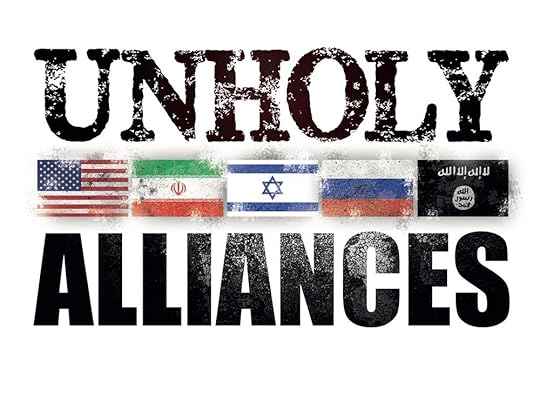
In the second part of the “First Chapter” blog-post, I ask the same question: Does the First Chapter grab you? Does it make you ask: What’s going on, where might this go, what are the stakes, and do I want more? Is there enough interest to turn to the next chapter? Unholy Alliances was my second novel. Here is the first chapter in text below. Let me know what you think.
Chapter 1
Napoli
He watched the crew throwing lines on the dark pier. The sleek Ferretti-Pershing yacht was nearly thirty-five meters in length; its true asset beyond its looks was its massive triple drive props, which were powered by over twenty-six hundred horsepower. The steel-gray Italian yacht was as fast as it was luxurious. Zach could never hope to stay up with it if it made a run for the open sea. His small boat was fast, but not that fast, and the lack of a deep-V hull meant he would bounce mercilessly in the open sea. Zach prayed the yacht was not going beyond Capri.
Capri’s lights were visible thirty kilometers to the southwest. It was just past midnight, and a sliver of a moon cast faint silver shadows on the black, windswept sea as the large yacht motored past the jetty, slicing into three-foot seas. Zack followed a hundred meters behind. Lights emblazoned the name of the yacht in gold inlay on its stern: Gulf Vision.
He made a call. “Elle, Zach Greer; I’m glad I caught you. I’m following Ratani. His yacht’s headed out of Napoli. Hecox is on board, and I think Foltz. If he is headed out of the area, I’ll lose him. I need satellite coverage.” He hoped the agency’s satellites were in a position to quickly find and track the yacht.
“I’ll make the call. I’ll see what I can do and get back,” Elle said.
Zach watched as the yacht came up on plane, throwing water ten meters in the air behind it as its massive props bit into the sea. The faint lights of Sorrento and Capri were visible in front of the yacht. At least it wasn’t headed out to sea, Zach thought. As soon as Zach made it past the jetty, he switched off his boat’s running lights and brought his boat up on plane. He followed the white-churned wake and far-off stern light of the yacht. Even in the yacht’s wake, his boat slammed on each swell as it strained to keep pace with the performance yacht. Spray drenched him, salt water stinging his eyes. The boat and his spine jarred with each wave.
He strained to see through the spray when his eyes saw the white gel coat of the dash crack and explode. For a moment it didn’t register. The dash shouldn’t come apart from the pounding of the waves. Then he knew. The windshield shattered and sparks flew from shells striking the aluminum windshield supports. He turned hard to port to see a red burst of automatic-weapon fire erupting from what looked like a zodiac in the dark waves. Then another zodiac moved in from starboard. They had him boxed in, and they were much faster.
The engine compartment burst into flames, only to be extinguished in a flash of vapor from the Halon fire-suppression system. The boat surged bow down off plane and plowed to a stop in the waves, its propulsion gone. Both zodiacs opened up coming in from starboard. With only a handgun, Zach knew the outcome was certain. He rolled over the port side into the dark water. He could hear a fusillade of rounds striking the boat. Both zodiacs approached from starboard, firing into the boat from less than twenty meters.
Zach fought to stay afloat as his shoes, jacket, and pants dragged him beneath the surface. He took a deep breath, submerged, and struggled to shed the jacket, which enveloped him like a shroud, dragging him deeper. He fought one arm free and surfaced for air. The boat was wallowing in the seas, dangerously close to striking his head. He shed the coat but hung onto it. He went under, sinking while unlacing his running shoes. He cursed himself for wearing laced shoes. Out of the shoes, he fought back to the surface with the coat and shoes in hand.
Tying the shoes around the coat, he forced them down, below him. This would only work if they disappeared; all trace of him needed to disappear. Still hearing rounds striking the boat, he took several deep breaths and swam as hard as he could beneath the surface ahead of the bow and away from the sinking boat—out into blackness. His eyes stung straining to see in the dark salt water.
His lungs burned for air. He surfaced, trying to come up without a splash. He could hear the zodiacs continuing to fire on the boat. He submerged again, trying to put distance between the bow of the crippled boat and him, away from light, surfacing for breath each time with as little disturbance as he could.
When he was forty or fifty meters from the boat, he stopped and looked back. The boat was sinking, nearly submerged. Both zodiacs were visible from the fires on the sinking boat. One of the zodiacs trained a light on the boat and the water surrounding it. They were looking for him. Twice the light swung toward him, and twice he submerged in time. He watched the boat sink below the waves and with it all light.
The zodiacs circled several times slowly, then raced off. His adrenaline began to dissipate. He began to feel the cold water on his skin and accept the blackness of the sea surrounding him. With virtually no moon, everything was black. He was alive, but by his guess, miles offshore. He fought the darkness around and beneath him and the fear it brought.
He started swimming for the lights of Napoli. The jetty he left would be the closest land. He tried to stop his thoughts; he knew that night brought predators and the discharge from urban centers concentrated sharks. He tried to comfort himself with the knowledge that even though the Mediterranean had its share of the four feared sharks - tigers, bulls, great whites, and oceanic white tips - their concentration was far less here than nearly any other sea. He pushed the fear of sharks from his mind, feeling confident that he would succumb to hypothermia and drown first.
April 18, 2020
THREATENED WATERS, Book 1 of the Twelver Series: The First Chapter
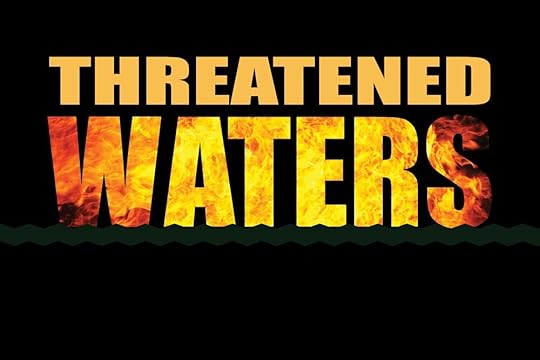
The first chapter of any book should make you ask: What’s going on, where might this go, what are the stakes, and do I want more? Is there enough interest to turn to the next chapter? Threatened Waters was my first novel. Here is the first chapter in text below and an audio link HERE . Let me know what you think.
Chapter 1
Southern Turkey—January 1990
The cold was sickening, pressing in on him, hunching him over. He gripped his coat collar, keeping whatever warmth there was from escaping. The hours before dawn are the coldest in the frigid wasteland of the Anatolia Highlands of south-central Turkey. Here, the wind sweeps the semiarid high plateaus much like the American high deserts. With nothing to stop the wind, the cold pressed into Akmed’s soul.
He had little to prepare him for the weather—a light oiled wool coat and thin gloves. He crouched down behind a boulder, trying to keep his face protected from the blustering wind, his knee aching from the cold ground it rested on. He wondered if he would just go to sleep in this cold place before the sun rose. He had hallucinated at one point, seeing his father, sister, and older brother together, waving for him to join them. And then he had snapped out of it, realizing it was a vision, each having died by Iranian rockets in that war. His groan against the wind was met harshly by Uday, who hissed for Alea and him to be quiet.
He was close to the dam and the massive gray concrete pipes that extended downhill. Uday called them penstocks, a strange word that was difficult for him to say. He could make out forms, guards, moving above, lit by the lights on the top of the dam. The moonless and cloudless night was bright with stars. Looking away from the lit dam, he could barely discern whether hills were trees, rocks were shadows, or bushes were guards. He prayed to Allah for strength and for the night to be over.
The three had spent the night stringing wires that would bring the water back home to Iraq. The Turks had stolen the precious water to create farms and light their country in the Western way. Tonight they would change that, and the West would be powerless to intervene. Saddam Hussein had shown he was able to play the West. Uday had shown them a torn newspaper earlier. It reported the US Army War College just two weeks before had proclaimed that Iraq had adopted a peaceful nonaggression policy that would last a decade. Uday had read the tattered paper:
Baghdad should not be expected to deliberately provoke military confrontations with anyone. Its interests are best served now and in the immediate future by peace.…Force is only likely if the Iraqis feel seriously threatened.…It is our belief that Iraq is basically committed to a nonaggressive strategy and that it will, over the course of the next few years, considerably reduce the size of its military.
Akmed knew that Iraq would act in ways the West never could predict, and it would begin with him tonight.
He had spent hours in the cold at the concrete pipes that extended down the hill, connecting charges to the plastic explosives. Ali Hassan al-Majid, whom he had heard sometimes called Chemical Ali, had provided the explosive, boasting it was “the most powerful NATO has to offer.” Soon the water would be turned into these concrete paths for the last time. Detonated, the charges would ensure the water never stopped flowing. The charges were designed to damage, not destroy, the dam. Destruction of the dam would be devastating to Iraq. Damaged, it would not be able to impound water and would be forced to bypass the river’s flow. Turkey and the West would blame the Kurds, and the distraction would allow Iraq to secure Kuwait’s riches and unify the northern Gulf under Iraqi control.
The Euphrates and its tributary, the Tigris, had provided the cradle of civilization with all that it required for millennia, only now to be shut off by the Turks. For the last month, the river had been dry, stagnant pools collecting waste and mosquitos so the Turks could fill their new reservoirs.
And now it was war, and if it had an incidental benefit of the Turks blaming and retaliating against the Kurds, that was the genius of Saddam. Saddam had long tried to eradicate the Kurds—in this he could find common ground with the Turks.
Akmed knew he needed to stop such thoughts…he needed to focus. Removing his gloves, he cupped his hands over his ears and rubbed his eyes. He needed to wake, be alert. He had allowed his thoughts to take over and his senses to be dulled in the cold. Brought back to the present by the hiss of water filling the penstocks, he never heard the footsteps or the sound of the safety sliding off the rifle ten meters behind him.
For Akmed, the sight of Uday’s head exploding into mist next to him was surreal; it had come a split second before the sound of the shot. Akmed lunged away just in time to avoid the round meant for him, rolled behind an escarpment, and began to run down the hillside. He lost his footing, sliding and rolling against the jagged rocks. The RPGs exploded behind him, then in front of him. And then there was a burst of light as the grenade blast impacted him. He felt searing heat, smelled the acid stench of cordite, and slipped into blackness.
April 13, 2020
It appeared to be sectarian terrorism. It was far worse.
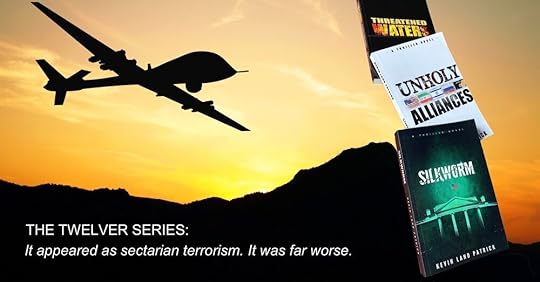
THE TWELVER SERIES: “A thriller series that runs full tilt from beginning to end.”
Bored in quarantine? What better way to escape than pickup a book from your favorite author (whoever that may be).
April 3, 2020
Pandemics and Water Part 2: Migration
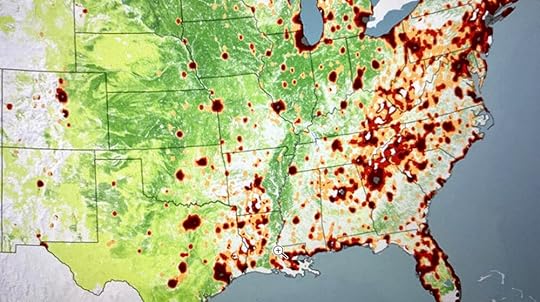
This Washington Post article (Escaping the Virus) seems to support Pandemics and Water Part 1, a post I made March 19th. Those with means in urban areas are rethinking where they need to perform business. Will this result in a migration out of cities, a form of #economic-distancing?
Click here to see the article
And if you missed the blog post Pandemics and Water Part 1 click here
March 26, 2020
Kindle Countdown - An Escape from the Quarantine
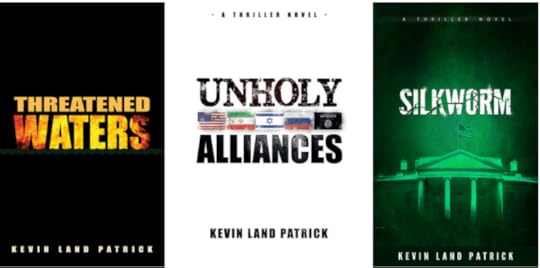
Books offer an escape to an alternate reality. Since most of us will be getting some level of cabin fever in the coming days and weeks, one solution is to get online and grab a good book and turn the bad news off. Support all the authors out there. Starting this Saturday, Amazon will be running the following Countdown Deals on my ebooks:THREATENED WATERS, Book 1 in the Twelver Series:
March 28-March 31 at 4pm MDT: $0.99 (67% discount)
March 31 at 4pm MDT - April 3: $1.99 (34% discount)
UNHOLY ALLIANCES, Book 2 in the Twelver Series:April 4 at 9am MDT - April 6: $0.99 (67% discount)
April 7- April 11: $1.99 (34% discount)
SILKWORM, Book 3 in the Twelver Series:April 11 at 9am MDT - April 14 5pm: $0.99 (76% discount)
April 14 at 5pm MDT - April 18: $1.99 (51% discount)
That’s less than a cup of coffee that you otherwise couldn’t get these days!March 24, 2020
Isolation Does Not Mean Isolated
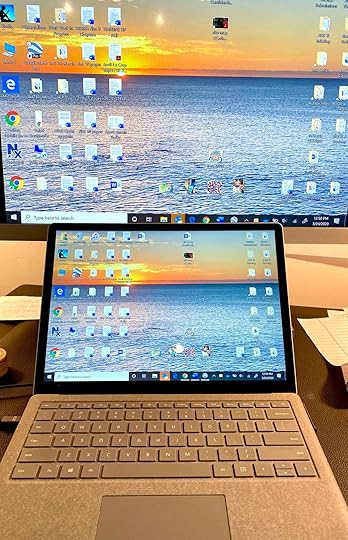
Working from home, alone, is nothing new to authors. These past days, while incredibly stressful to others, is just more of the same isolated existence an author, artist, craftsman (crafts-person?), and many others embrace. But being in isolation or lock-down does not have to mean feeling isolated. In the past week, dozens of people I have not heard from in months or even years have reached out online. That not only feels good, it is good. Let’s hope that sort of connectivity continues when all this is over. It is but one of the positives that might come out of this dreadful virus.Turn the TV off, turn off the news feed. It isn’t healthy constantly listening to the news of the virus, becoming upset as both the Democrats and Republicans continue their partisan bickering, or becoming frustrated at how ineffective the federal government is in this time of crisis. Since we apparently do not have much leadership at any level, lead yourself through this. Reach out and connect with others, see what others may need, how they feel, what you can do. Something very surprising may come come from all this. We might find that we welcome isolating ourselves from negative news, negative people, identify the more important things in life, and put more balance back in our lives.



